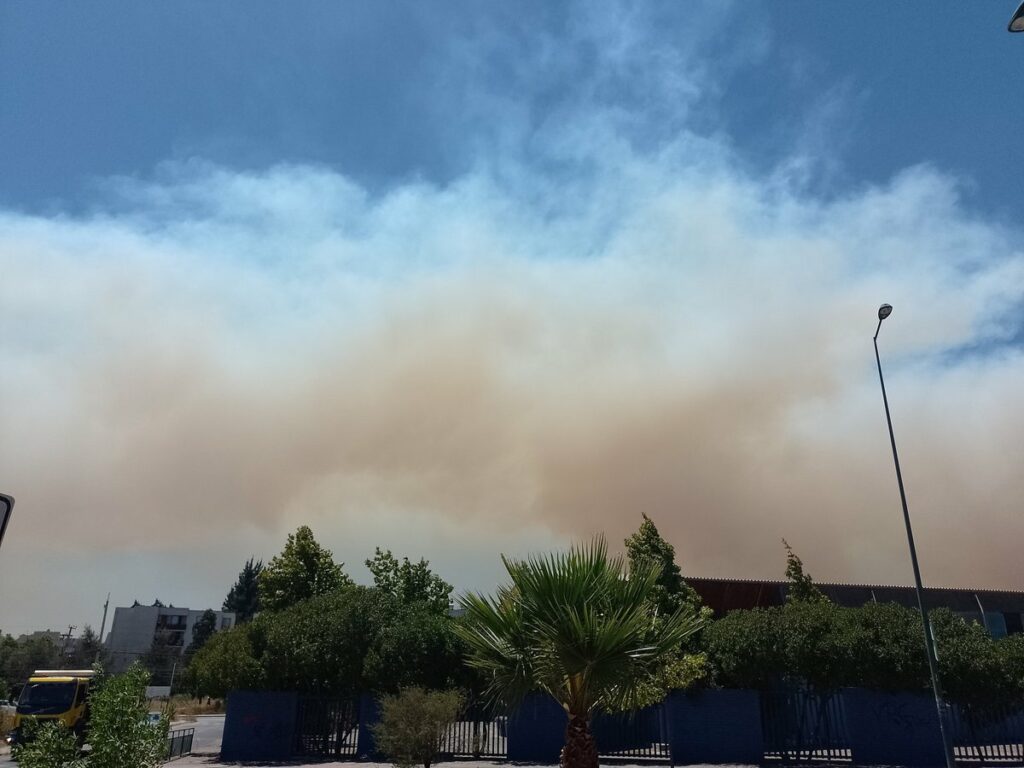From flooding in Bolivia to firestorms in Chile, the dire impacts of human-caused climate change have brought about extreme weather events across South America.
In early February, Chile’s coastal Valparaíso region and the region around the capital, Santiago, saw a wave of wildfires that quickly spread, burning tens of thousands of homes and leaving more than 133 people dead. The popular coastal tourist destination of Viña del Mar was among the areas hardest hit.
The fires come as Chile has seen historically high temperatures, passing 104 degrees Fahrenheit. According to the United Nations Office for Disaster Risk Reduction, this fire season is one of the deadliest on record.
Damage from wildfires in Chile has grown worse in recent years. At the beginning of 2023, 400,000 hectares (nearly 990,000 acres) burned across the country.
“Since 2013, each year has been more serious than the previous year,” Fernando Iglesias, a conservation scientist and executive director of the Andean Conservancy, tells The Progressive. “[The fires] are increasing in terms of severity and size.”
The conditions this year are partly due to the effects of El Niño, which brings higher temperatures and drier conditions.
“We have reached peak temperatures in recent years,” Iglesias says. “The rise of temperature is driven by climate change. And here you have all [the ingredients] to create a disaster in terms of fires.”
But according to Iglesias, the wildfires were also fueled by an above-average level of wildgrasses due to the return of a normal rainy season the previous year.
“For the first time in fifteen years we had normal rain,” Iglesias says. “There was a bloom of flowers and grass in the mountains. … So we have a lot of fuel.”
Chile is not alone in this crisis, as massive wildfires have also ripped through are Colombia, Ecuador, Bolivia, and Argentina.
Colombia has had one of the worst fire seasons in its history, with 42,000 acres of forests affected. In January 2024, wildfires encroached on Colombia’s capital, Bogotá. As a result, the airport was closed for the day and President Gustavo Petro declared a state of emergency.
Just across Chile’s border to the east, Argentina, has struggled to contain massive wildfires that have spread through Patagonia. In the Los Alerces National Park alone, more than 1,480 acres were burned in a fast-moving wildfire.
“These events are a wake-up call to different international actors,” Lucía Soto Rincón, a monitor within the Department of Environmental Law at the Universidad Externado de Colombia, wrote in February 2023.
“[So] that they not only implement measures to stop the fires, but also to raise awareness of the importance of combating climate change.”
“We are still trying to adapt ourselves and try to create strategies of resilience”—Fernando Iglesias
While Chileans have not begun fleeing the region due to climate change, in communities in Chile that say that the government was slow in responding, residents have taken it upon themselves to protect their homes.
“We are still trying to adapt ourselves and try to create strategies of resilience,” Iglesias says. “As a community, we organize ourselves to monitor and to combat fires.”
These self-organized fire brigades, in some cases, have helped save homes. Reuters reported that the seventy homes in the Villa Botania neighborhood on the outskirts of Viña del Mar were prevented from burning by community groups like the one Iglesias describes.
“Going there early, within the first hour, you have a chance to extinguish a fire,” he explains. “If not, then it becomes something that is very difficult to manage.”
Source link : https://progressive.org/latest/climate-change-is-fueling-wildfires-across-south-america-abbott-20240223/
Author :
Publish date : 2024-02-23 03:00:00
Copyright for syndicated content belongs to the linked Source.
